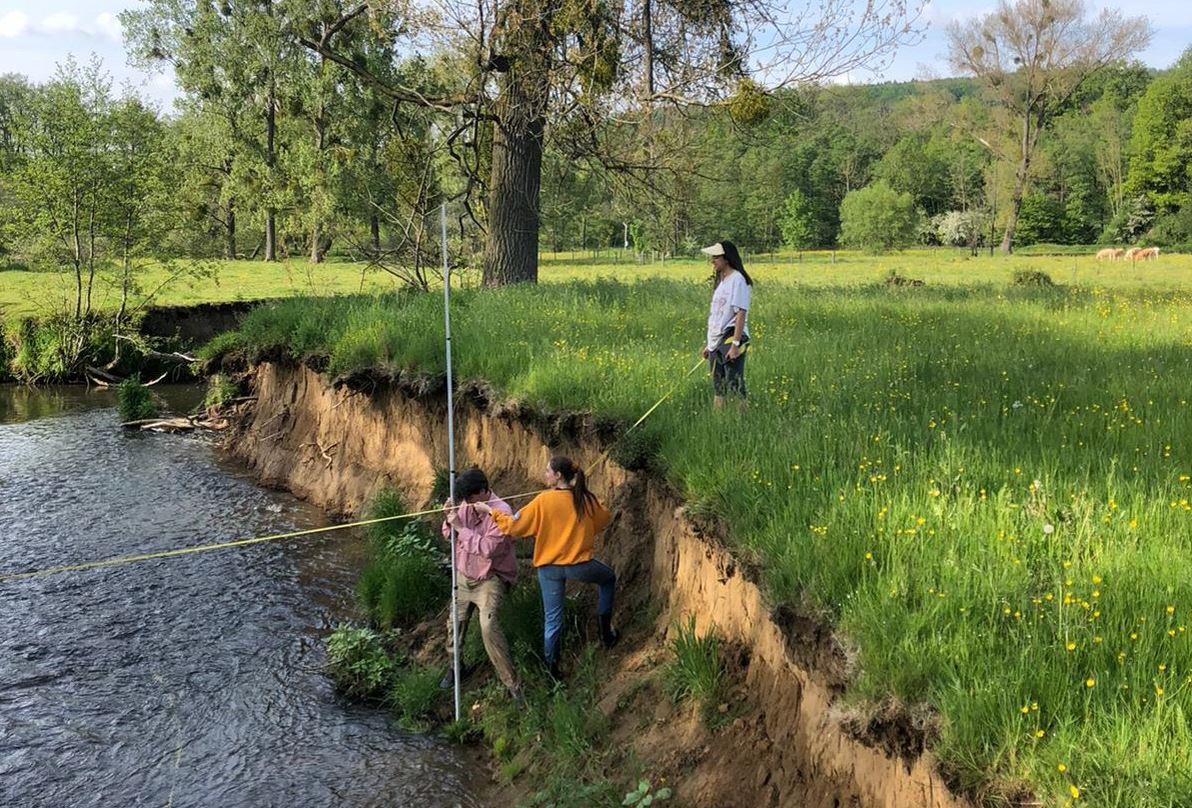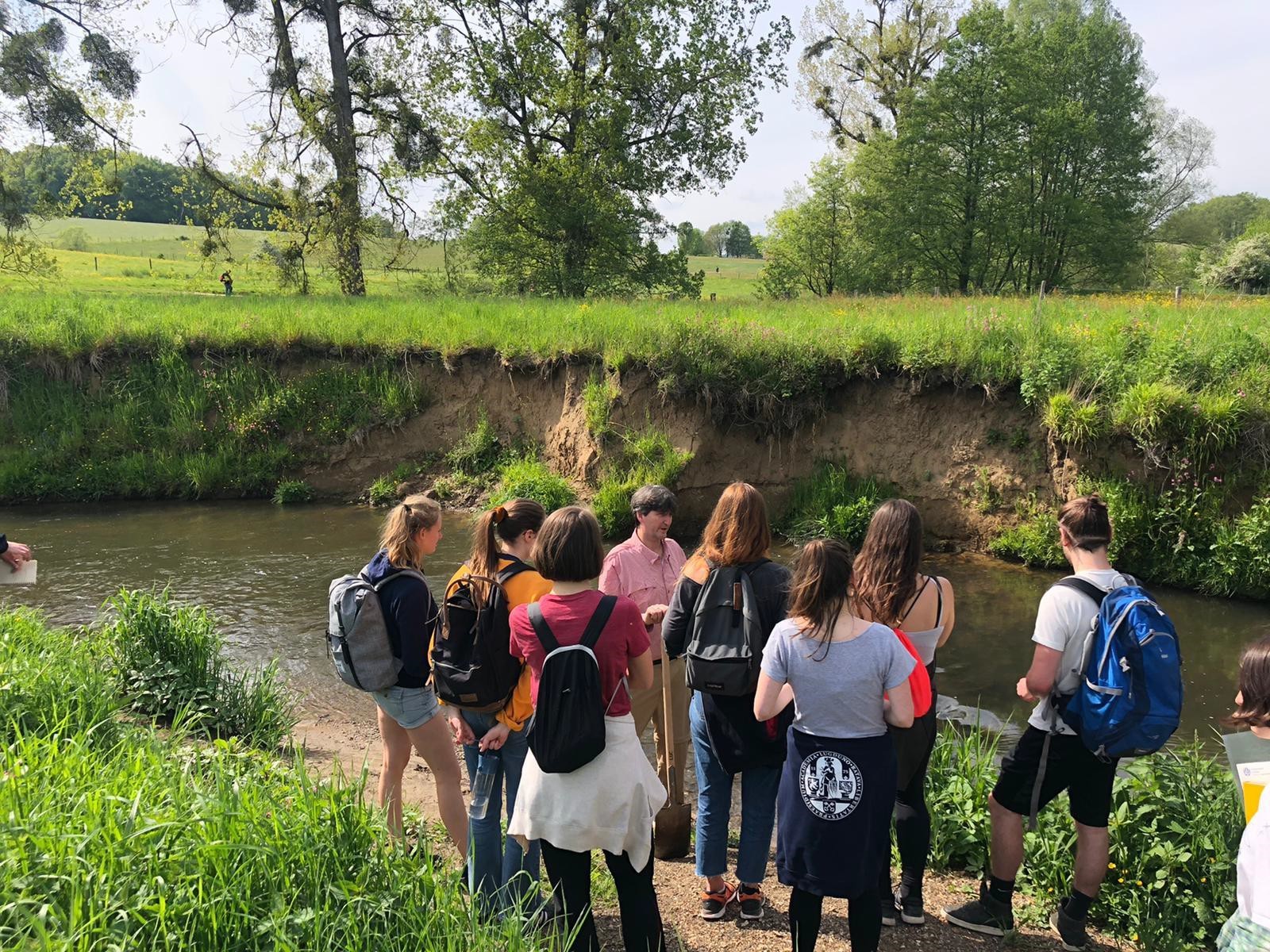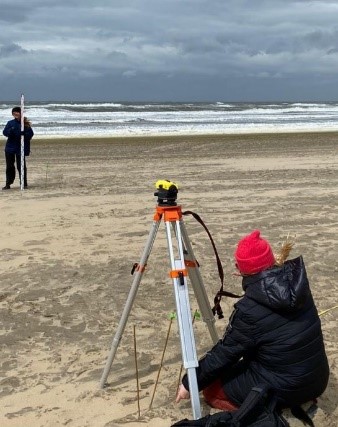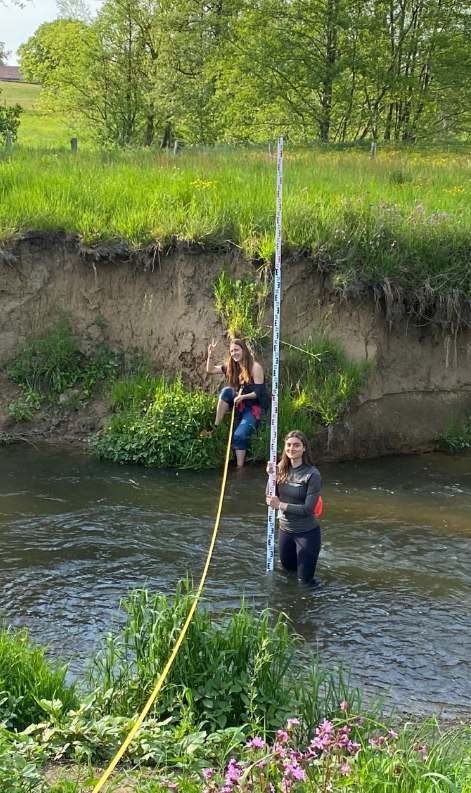
Getting students away from screens... and into the landscape
Leiden University's International Honours College, Leiden University College The Hague (LUC) experienced empty halls and empty classrooms this past year on the residential campus on the Anna van Buerenplein in The Hague due to the global pandemic. Dr Paul Hudson designed a Covid-proof course that enabled students to participate in the field, getting them away from their screens... and into the landscape.
Students with an interest in learning how to collect environmental field samples often enroll in LUC’s Field Methods course, which was cancelled last year due to the lockdown restrictions. This year, however, Paul Hudson, Associate Professor at LUC, designed a course that enabled students to participate in the field while complying with Covid protocols. The Field Methods course provides students with skills necessary for environmental sample collection focused on land and water resource management.
Across The Hague
The course takes advantage of a range of settings and topics in the The Hague area, including human impacts to soils in Haagse Bos, coastal dynamics in Scheveningen, and – further afield – riverine dynamics in Limburg. The course provides systematic training in data collection techniques that inform the science of sustainability. The students worked diligently during block four in sun and rain, wind and water, and sand and sea to collect samples for examining a range of issues related to land and water resource management.
-

Taking measurements of physical riparian habitat (pools and riffles), including topographic (bathymetry), velocity, and sedimentary substrate of the channel bed related to endangered species -

The fortunate sunny weather allowed for ample field discussion related to fluvial dynamics, linkages between biotic and abiotic habitat, and governance of environmental water resource management. -

Scheveningen’s dynamic coastal environment: Students sampled coastal sediments and obtained topographic measurements using standard level and tape procedures to quantify coastal morphology, which is intensively modified and managed for sea level rise. -

Students were tasked with taking different types of soil measurements and samples, including soil moisture, temperature, and bulk density, the latter often used as a proxy for soil organic carbon and land degradation.
Environmental flows of the Geul River
The course culminated in a three-day camping trip to deep south Limburg, to study ‘environmental flows’ of the Geul River riparian corridor, the largest Natura 2000 site in the Netherlands. The Geul River serves as an outdoor ‘laboratory’ for Dutch geoscientists studying fluvial and hydrologic processes. In preparation for the field trip, students familiarised themselves with relevant academic literature, as well as information and data from governmental sources. The field trip was organised around the concept of environmental flows, the core paradigm to sustainably manage and restore rivers. The module required hydrologic, sedimentary, hydraulic, and topographic field measurements to obtain data to rigorously analyse the concept of environmental flows for the Geul River.
Learning in the field
The experience afforded an ideal opportunity for the class to apply skills developed over the entire course and, in a sense, put them to the test. LUC’s field methods course has always served as a unique educational experience and the 2021 iteration was no exception. Students were able to take a break from their online setting, and experience learning in the field, vital to education in environmental sciences.
Leiden University College The Hague offers a broad, flexible and interdisciplinary residential Liberal Arts and Sciences programme with a focus on Global Challenges. In this bachelor programme students specialise in relevant fields like world politics, economics, governance, international justice, human & cultural interaction, global public health and environmental sciences.
